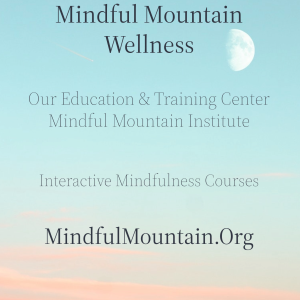
Saturday Aug 31, 2024
Episode 2: Anti Inflammatory Diet and Lifestyle for a Healthy Body and Mind: Prevention
Research indicates that spending time in natural environments can lead to reduced levels of stress hormones, such as cortisol. This reduction occurs in several ways.
First, exposure to nature can activate the body's relaxation response. Natural settings often encourage slower, more mindful breathing and promote a sense of calm. Activities like walking in a park, hiking in the mountains, or simply sitting by a body of water can help individuals disconnect from daily stressors and encourage mental clarity.
Second, nature encourages physical activity, which is beneficial for both physical and mental health. Engaging in outdoor activities can improve mood, reduce anxiety, and create a sense of accomplishment. Exercise increases the production of endorphins, which are known as "feel-good" hormones, further mitigating stress levels.
Moreover, spending time outdoors can enhance social connections, which are essential for managing stress. Whether it's joining a group for a nature walk or engaging in outdoor recreational activities with friends and family, these social interactions contribute to emotional support and resilience.
Furthermore, natural environments are inherently restorative. The concept of "biophilia" suggests that humans have an innate affinity for nature. This connection can lead to improved focus and mental restoration, as evidenced by studies showing that even brief interactions with nature can enhance cognitive function and creativity.
Additionally, nature can serve as a reminder of the present moment, which is a key aspect of mindfulness practice. Being in a natural setting allows individuals to engage their senses—observing colors, feeling textures, and listening to sounds—which can ground them and reduce feelings of overwhelm.
Incorporating nature into daily life does not require extensive time or travel. Simple acts, such as tending to a garden, taking a walk around the block, or enjoying a sunny day outside, can have profound effects on stress levels and overall well-being.
In conclusion, nature plays a crucial role in alleviating chronic stress. By promoting relaxation, encouraging physical activity, fostering social connections, and providing restorative experiences, the natural world can help individuals manage stress more effectively. Making time for nature can be a valuable strategy in the pursuit of a balanced and healthy life.
A strong support system and healthy connections with loved ones play a crucial role in reducing stress, fostering a sense of purpose and belonging. When individuals feel supported and connected, their emotional resilience increases, allowing them to navigate life's challenges more effectively. This support can lead to improved mental well-being, which has a direct impact on physical health.
Research shows that stress can negatively affect the immune system, making the body more susceptible to illness and inflammation. By cultivating relationships and being part of a community, individuals can create a buffer against these stressors. Engaging with family and friends, participating in group activities, or simply sharing experiences can provide comfort and reassurance.
In turn, a sense of belonging nurtures our purpose, motivating us to take care of ourselves and each other. This intrinsic motivation promotes healthy habits, such as regular exercise and balanced nutrition, further bolstering our immune defenses.
In summary, maintaining supportive connections and a sense of community can effectively reduce stress, enhancing the body's resilience against inflammation and other stress-related health issues. Prioritizing these relationships is essential for holistic well-being and longevity.
Understanding these connections can help individuals take steps to support their immune health, thereby enhancing their body’s ability to manage inflammation and promote healing. Prioritizing a balanced diet, quality sleep, stress management techniques, and regular exercise can collectively contribute to a more resilient immune system and improved inflammatory response.
Comments (0)
To leave or reply to comments, please download free Podbean or
No Comments
To leave or reply to comments,
please download free Podbean App.